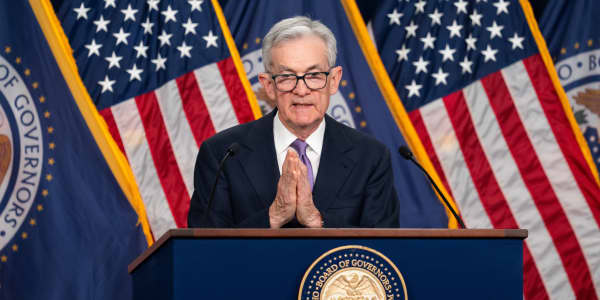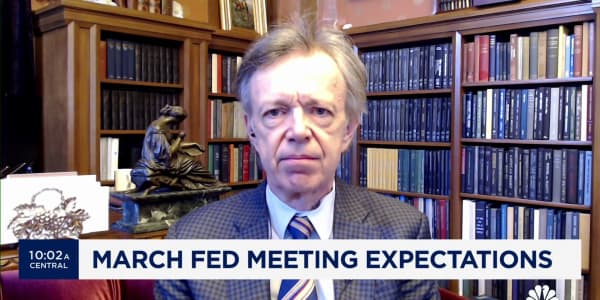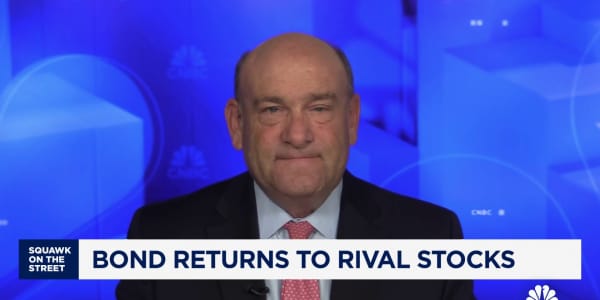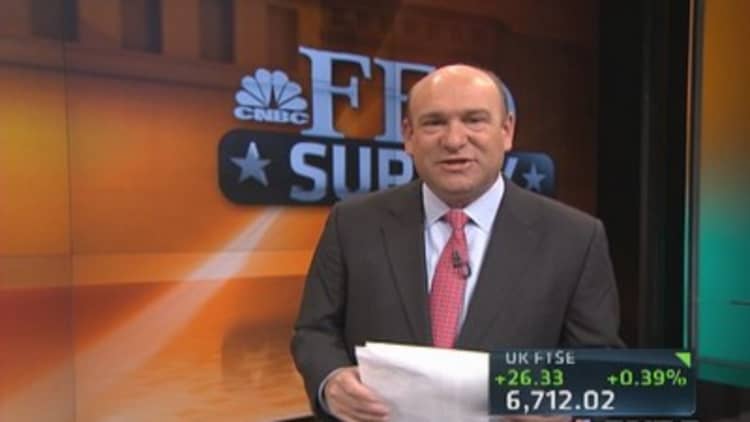
Wall Street is now forecasting a slightly more hawkish monetary policy over the next two years in a change that follows the first press conferences and major economic speeches by new Fed Chair Janet Yellen.
The April CNBC Fed Survey shows respondents looking for a 1 percent Fed Funds rate on average to end 2015, up from 0.83 percent in March. The median is up a full quarter point. And half of the respondents now believe the Fed will reverse quantitative easing in 2015 and begin to reduce the size of its balance sheet. That's up from 39 percent in the March survey.
The amount of reduction is small: The balance sheet is seen declining by around $146 billion in 2015, up from $104 billion in the last survey. The Fed's balance sheet will decline once it decides to not replace securities that have matured. It has said it won't actively sell assets to reduce reserves in the system, which are now at $4.2 trillion.
Read MoreGeopolitical uncertainty clouds view on Fed outlook: CNBC survey
Yellen roiled markets in her first press conference as Fed chair in March, when she said the Fed would begin raising short-term interest rates six months after it stopped purchasing assets. That was sooner than markets generally expected. Yellen's comments since that remark, however, have led to more dovish market reactions.
On average, respondents don't see the first rate hike coming until July 2015, in line with the prior survey's estimate of the third quarter of 2015. Just under a third of respondents say the Fed should taper faster, with about 60 percent backing the Fed's current pace.
Although the answers were a touch more hawkish than previous surveys, around half say the bigger risk to their forecast is that the Fed is more dovish than they expect this year and next. But there are important differences. For 2015, about 40 percent say the biggest risk is that the Fed is more hawkish, compared with 21 percent who are worried about a more hawkish central bank this year, showing there is more disagreement about policy next year.
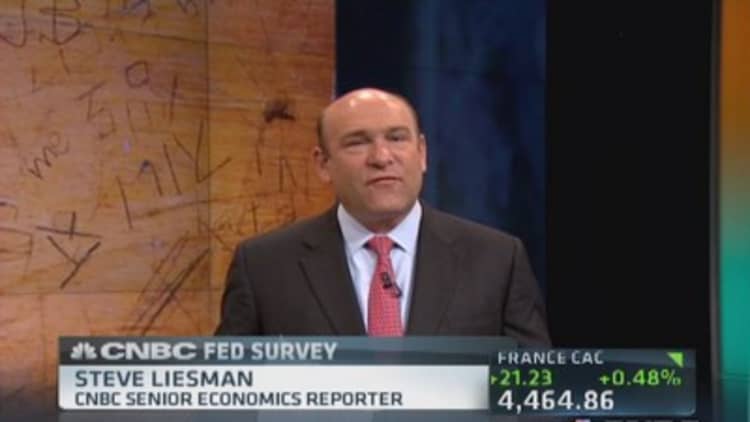
Wall Street gives Yellen a slightly lower grade than her predecessor Ben Bernanke. Yellen received a B minus from the market, compared with a B in Bernanke's final grade. Bernanke got higher marks than Yellen for leadership, transparency, communication and overall policy. Yellen beat Bernanke in economic forecasting. The biggest gap is leadership, where Bernanke got an A and Yellen a B.
Read MoreBehind Janet Yellen's inflation dilemma
Meanwhile, there was a slight decline in those who see the Fed's overall communications as clear and credible, but the numbers are still high at 64 percent.
Respondents to the Fed survey are a little more upbeat on stocks, seeing a 4 percent gain between now and January for the S&P and an 8 percent gain between now and June 2015 from the current level.
"Returns will be more modest, but total return compounded over the 2014 thru 2016 period will be attractive," wrote Scott Wren of Wells Fargo. "If that is the case, retail investors need to be in this market and not sitting with overweight positions in cash that yield virtually zero."
But John Roberts, a senior vice president at Hilliard Lyons, is more bearish. "We remain worried about a potential shortfall in earnings versus expectations later this year or early in 2015,'' he said.
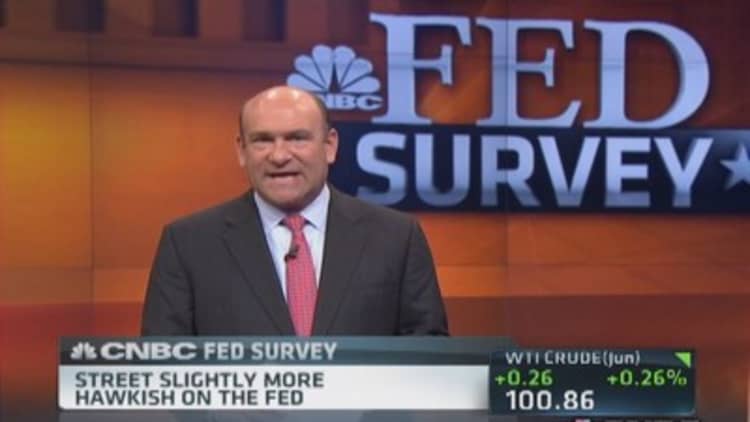
The outlook for interest rates continues to improve, with the 10-year seen rising to 3.21 percent by year-end, down from 3.32 percent in the prior survey. By June 2015, it is forecast to rise as high as 3.5 percent.
Read More
The probability of recession in the 12 months dropped to the lowest in the survey's record, falling to 14.6 percent from 16.9 percent. (It's been as high as 36 percent).
Growth prospects remain robust, with the respondents forecasting 2.7 percent growth this year and 3 percent next year, about in line with the last survey but up from the 1.9 percent growth registered in 2013.
Tax and regulatory policies remain the No. 1 threat to the economy, respondents say, followed by slow job and the new entrant: geopolitical risk. But trouble in China's economy and developments in Ukraine are not seen having much impact on the U.S. economy or creating much chance of global systemic risk.
—By CNBC's Steve Liesman. Follow him on Twitter: @steveliesman



